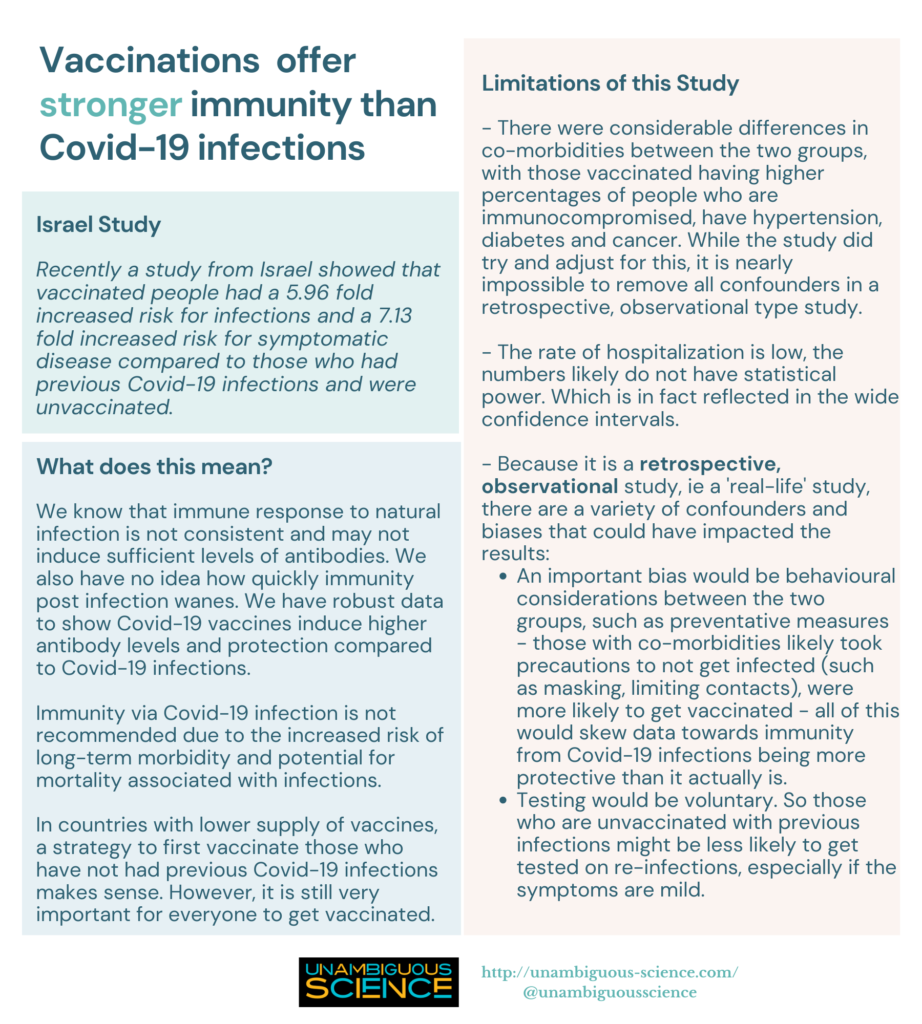Immunity from Infection vs Vaccination
Recently a study from Israel showed that vaccinated people had a 5.96 fold increased risk for infections and a 7.13 fold increased risk for symptomatic disease compared to those who had previous Covid-19 infections and were unvaccinated.
However, there are many limitations in this particular study, which I will outline below.
Limitations:
1- There were considerable differences in co-morbidities between the two groups, with those vaccinated having higher percentages of people who are immunocompromised, have hypertension, diabetes and cancer. While the study did try and adjust for this, it is nearly impossible to remove all confounders in a retrospective, observational type study.
2- The rate of hospitalization is low, the numbers likely do not have statistical power. Which is in fact reflected in the wide confidence intervals.
3- Because it is a retrospective, observational study, ie a ‘real-life’ study, there are a variety of confounders and biases that could have impacted the results:
- An important bias would be behavioural considerations between the two groups, such as preventative measures – those with co-morbidities likely took precautions to not get infected (such as masking, limiting contacts), were more likely to get vaccinated – all of this would skew data towards immunity from Covid-19 infections being more protective than it actually is.
- Testing would be voluntary. So those who are unvaccinated with previous infections might be less likely to get tested on re-infections, especially if the symptoms are mild.
What does this mean?
We know that immune response to natural infection is not consistent and may not induce sufficient levels of antibodies. We also have no idea how quickly immunity post infection wanes. We have robust data to show Covid-19 vaccines induce higher antibody levels and protection compared to Covid-19 infections.
Immunity via Covid-19 infection is not recommended due to the increased risk of long-term morbidity and potential for mortality associated with infections.
In countries with lower supply of vaccines, a strategy to first vaccinate those who have not had previous Covid-19 infections makes sense. However, it is still very important for everyone to get vaccinated.
***See also: previous post on why it’s important to get vaccinated even if you’ve had Covid.***

